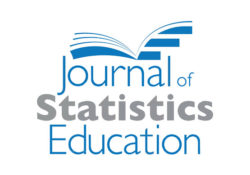eric.ed.gov har udgivet: This collection of activities demonstrates how the study of elementary mathematics can be extended beyond the school and involve teachers and students in investigative, problem-based experiences. The activities include topics in geometry, concept of number, algebra, measurement, graphing, statistics, and probability, and are organized into five different math trails. With this method of organization, up to 100 elementary students can participate in the activities on the same day. Each math trail has 10 activities and each activity utilizes the particular attributes of the section of the mall in which it is situated. Students collect the necessary data at the mall and then complete the activities upon returning to their classrooms by interpreting the data and applying their previous learning and understanding in mathematics to solve a real-life… Continue Reading →
Like this:
Like Loading...
eric.ed.gov har udgivet: “Focus on Basics” is a publication of the US Division of World Education, Inc. It presents best practices, current research on adult learning and literacy, and how research is used by adult basic education teachers, counselors, program administrators, and policymakers. “Focus on Basics” is dedicated to connecting research with practice, to connecting teachers with research and researchers with the reality of the classroom, and by doing so, making adult basic education research more relevant to the field. The theme of this issue of “Focus on Basics” is “Numeracy.” Articles in this issue include: (1) Using Part-Whole Thinking in Math (Dorothea Steinke); (2) Numeracy Matters (Myrna Manly); (3) Designing Instruction with the Components of Numeracy in Mind (Lynda Ginsburg); (4) Changing Practice, Expanding Minds (Kate Nonesuch); (5) A… Continue Reading →
Like this:
Like Loading...
eric.ed.gov har udgivet: This book lists and describes opportunities for teenagers to participate in organized science and math activities within and without the classroom. Students may participate at the local or school level by joining clubs and interest groups and by entering fairs; at the national level, by entering competitions of various sorts; and at the international level, by competing in olympiads and other kinds of contests. The experiences of teachers and students involved in these types of activities, information about the organization and functions of activities, and survey results are described. Lists of national and international science and mathematics activities are provided. (CW) Link til kilde
Like this:
Like Loading...
eric.ed.gov har udgivet: In this study, we expand the Cohen and Ball triangle of interactions to explore the relationship of professional development to classroom practice. We consider a case study of one teacher’s implementation of a task from professional development in her 7th grade classroom. We were specifically interested in how the content and pedagogy of the professional development would be adopted by the teacher. Our findings suggest that this teacher treated pedagogy and mathematical content as separable, which led to problematic implementation of PD practices. [For the complete proceedings, see ED585874.] Link til kilde
Like this:
Like Loading...
tandfonline.com har udgivet en rapport under søgningen “Teacher Education Mathematics”: Abstract Abstract Early exposure to data science skills, such as relational databases, is essential for students in statistics as well as many other disciplines in an increasingly data driven society. The goal of the presented pedagogy is to introduce undergraduate students to fundamental database concepts and to illuminate the connection between these database concepts and the functionality provided by the dplyr package for R. Specifically, students are introduced to relational database concepts using visualizations that are specifically designed for students with no data science or computing background. These educational tools, which are freely available on the Web, engage students in the learning process through a dynamic presentation that gently introduces relational databases and how to ask questions of data stored… Continue Reading →
Like this:
Like Loading...
eric.ed.gov har udgivet: Among the reported proven positive results of early world Language (WL) study are improved cognitive abilities and “higher achievement test scores in reading and math” (Stewart: 11), which are expected student performance outcomes for the Common Core Standards. The future viability of Foreign Language in Elementary Schools (FLES) programs, however, is fragile at best, in today’s educational arena. FLES programs that have essentially concentrated their student performance expectations on basic communication skills and cultural content in the target language may therefore need to include a content-enriched STEM focus in order to seek and establish a viable presence in the elementary school curriculum. The authors of this paper suggest that proponents of FLES integration into the nation’s schools need to identify disciplinary literacy as the common denominator connecting… Continue Reading →
Like this:
Like Loading...
eric.ed.gov har udgivet: This article will discuss two teacher training functions: One function is to give the teacher candidates practice in evaluating currently available mathematics websites used in grades K-8 for mathematics instruction. The second function is the evaluation of data by teaching candidates of 13 commonly used math sites by middle and elementary teachers. Research and data collection are combined with the authentic activity of evaluating mathematics websites using critical review and evaluation tools. The usage of technology to assist in the education process was been increasing with the advent of more complicated technologies and relevant software (e.g., mathematics based websites). Creating new ideas on how to potentially aid learning is important, but so is the evaluation of such sites and programs in order to determine that they (e.g.,… Continue Reading →
Like this:
Like Loading...
